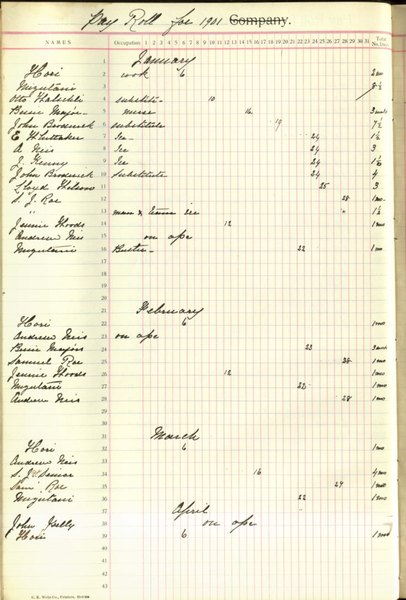Immigration and Exclusion
Immigrants were often constrained in their attempts to establish community in the United States by a set of limited options and opportunities. The adversity faced by immigrants has been a source of both inspiration and dissappointment.
The ledger page to the left provides the name of an individual whose life serves as an example of such challenges. It is the payroll for the Conrad Mansion in 1901, and the first person listed is a cook named Mokutaro Hori. Hori went on to own a ranch, restaurant, and hotel in Whitefish, Montana. According to Charles E. Murphy's biography of Charles Conrad, Hori could not earn enough money as a servant to purchase land and attain the success he ultimately acheived. After a visit to Japan, Hori devised a plan to staff the Conrad Mansion for a fee, thus freeing him from his commitment and allowing him to pursue other opportunities. Over time, Hori became an important member of the Whitefish community. Hori was an exception amongst a Montana Japanese American community that declined rapidly during the first half of the 20th century.
The remaining documents in this section highlight different experiences related to the establishment of immigrants and immigrant communities in Montana.

